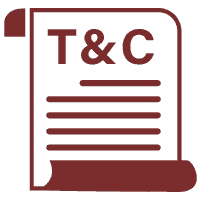Health insurance plans for families provide comprehensive coverage for the policyholder, spouse, and dependent children. These plans offer financial protection against medical expenses, including hospitalization, consultation fees, medication costs, daycare expenses, and more. With various options available, families can choose a plan that suits their needs and ensures access to quality healthcare when required.

What is family health insurance?
Family health insurance is a type of medical insurance that provides coverage for all members of a family under a single policy. It offers financial protection and access to healthcare services for the policyholder, their spouse, and dependent children. Family health insurance plans typically cover a range of medical expenses, including hospitalization, doctor visits, medications, and preventive care. It provides peace of mind by ensuring that the entire family is covered in case of illness or injury.
Types of family health insurance plans




Family Floater Health Insurance Plan
Family floater health insurance provides coverage for the entire family under a single policy. It offers a common sum insured that can be shared among all family members, allowing flexibility in utilizing the coverage. Features include coverage for hospitalization expenses, Ambulance Charges, pre and post-hospitalization expenses, daycare procedures, and specific illnesses. Benefits include cost savings, the convenience of a single policy, and the ability to cover the entire family under one plan. Eligibility criteria usually include a minimum and maximum entry age for adults and children.
Comprehensive Family Health Insurance Plan
Comprehensive family health insurance offers extensive coverage for the entire family. It includes benefits such as hospitalization expenses, pre and post-hospitalization coverage, daycare treatments, maternity coverage, Mental Illness Cover, newborn baby coverage, and coverage for specific illnesses. Features may include cashless hospitalization, coverage for alternative treatments, emergency medical expenses, and preventive health check-ups. Eligibility criteria typically include minimum and maximum entry ages for adults and children, with coverage available for dependent children and spouses.
Top-up Health Insurance for Family
Top-up health insurance is an additional coverage option that supplements the existing health insurance policy. It provides additional coverage beyond the threshold limit specified in the base policy. It offers higher coverage at an affordable premium, making it a cost-effective option to enhance overall coverage for the family. Features include coverage for hospitalization expenses, pre and post-hospitalization expenses, and specific illnesses. Eligibility criteria may require having an existing base health insurance policy and meeting the minimum entry age criteria.
Individual health insurance plans provide separate coverage for each family member. Each individual has their own policy with customized coverage options based on their specific needs. Features include coverage for hospitalization, doctor consultations, medications, and diagnostic tests. Benefits may include cashless hospitalization, coverage for pre and post-hospitalization expenses, and coverage for specific illnesses. Eligibility criteria generally include minimum and maximum entry ages for adults and children, with coverage available for dependent children and spouses.
Family health insurance coverage
Family health insurance policy what covered
Family health insurance plans offer extensive coverage for various medical expenses to ensure the well-being of your loved ones. Here are some key coverage and benefits provided by these plans:
-
In-patient Hospitalization Expenses: Family health insurance covers the costs incurred during hospitalization, including room charges, doctor's fees, nursing expenses, and medical procedures.
-
Day Care Procedures: Certain medical treatments and procedures that do not require overnight hospital stays, such as chemotherapy or dialysis, are covered under family health insurance.
-
Ambulance Charges: Emergency ambulance services, including both road and air ambulance transportation, are typically covered to ensure timely and safe transfer to medical facilities
-
Maternity Cover: Family health insurance plans often include coverage for maternity expenses, including pre-natal and post-natal care, childbirth, and newborn baby coverage.
-
Organ Donor Expenses: Medical expenses related to organ transplantation, including the harvesting of organs from a donor for the insured recipient, are covered under family health insurance.
These coverage and benefits provide financial protection and peace of mind during medical emergencies. It is important to review the policy terms and conditions to understand the specific coverage limits, waiting periods, and exclusions associated with each family health insurance plan
Family health insurance policy what not covered
While family health insurance policies provide comprehensive coverage for various medical expenses, there are certain exclusions or limitations to be aware of. Here are some common exclusions typically found in family health insurance policies:
-
Pre-existing conditions: Most policies have a waiting period for pre-existing conditions, which means expenses related to any pre-existing medical conditions are not covered during that period
-
Cosmetic procedures: Family health insurance policies usually exclude coverage for cosmetic procedures or surgeries performed solely for aesthetic purposes.
-
Alternative therapies: Certain alternative therapies like acupuncture, naturopathy, or homeopathy may not be covered under family health insurance plans unless specifically mentioned.
-
Unproven treatments: Experimental or unproven treatments and medications that have not been approved by regulatory authorities may be excluded from coverage.
-
Self-inflicted injuries: Injuries resulting from self-harm or attempted suicide are generally not covered under family health insurance policies.
-
Non-medical expenses: Non-medical expenses such as administrative charges, admission fees, or service charges are typically not covered by insurance plans.
-
War or fluid: Family health insurance policies typically exclude coverage for injuries or medical expenses resulting from war, fluid declared or undeclared.
-
Certain treatments or procedures: Some specific treatments or procedures, such as cosmetic dentistry, fertility treatments, or weight loss surgeries, may have limited or no coverage under family health insurance policies.
It is essential to carefully review the policy terms, conditions, and exclusions to have a clear understanding of what is not covered by your family health insurance policy.
Things to keep in mind while Buying a Family Health Insurance Plan in India

Coverage
Assess the coverage provided by the plan, including in-patient hospitalization, pre and post-hospitalization expenses, daycare procedures, ambulance services, maternity benefits, and coverage for specific illnesses or treatments.

Additional Benefits
Explore any additional benefits offered by the plan, such as coverage for alternative treatments, preventive health check-ups, wellness programs, or critical illness coverage. These extras can add value to your policy.

Premiums
Evaluate the affordability of the plan and determine if the premium fits within your budget. Compare premiums from different insurers to find a balance between cost and coverage.

Family Coverage
Ensure that the plan provides coverage for your entire family, including your spouse, dependent children, and parents. Check the age limits and eligibility criteria for family members.

Network of Hospitals
Check the network of hospitals and healthcare providers associated with the insurance plan. Ensure that there are reputable hospitals near your location to access quality healthcare services.

Reputation of the Insurer
Research the reputation and financial stability of the insurance company. Consider their customer reviews, claim settlement ratio, and overall customer satisfaction ratings.

Policy Exclusions
Understand the exclusions and limitations of the policy. Familiarize yourself with conditions or treatments not covered, waiting periods for pre-existing illnesses, and any specific restrictions related to age or medical history.

Policy Terms and Conditions
Read and understand the policy terms, including renewal provisions, waiting periods, co-payment requirements, and any sub-limits on specific treatments or expenses.

Claim Process
Evaluate the ease and efficiency of the claim process. Look for insurers with a good track record of quick and hassle-free claim settlements. Consider factors such as cashless claim facility, reimbursement procedures, and customer support.

Personal Requirements
Assess your family's specific healthcare needs and preferences. Consider factors such as the need for maternity coverage, pre-existing conditions, geographical coverage, and any specific healthcare requirements unique to your family members.
Eligibility criteria to buy family health insurance policy
The eligibility criteria for buying a family health insurance policy may vary depending on the insurance provider and the specific policy. However, here are some common eligibility criteria to consider:
Age: Generally, the minimum age to purchase a family health insurance policy is 18 years, while the maximum age limit can vary. Some policies may have a maximum entry age limit, typically around 65 years or higher.
Family Members: Family health insurance policies typically cover the policyholder, their spouse, and dependent children. The definition of dependent children may vary, but it usually includes children up to a certain age (e.g., 18 or 25 years) who are financially dependent on the policyholder.
Medical History: Insurance companies may evaluate the medical history of the individuals to be covered under the policy. Pre-existing medical conditions or a history of certain illnesses may affect eligibility or result in exclusions or waiting periods for specific conditions.
Citizenship/Residency: Most family health insurance policies are available to Indian citizens as well as foreign nationals residing in India. The policy may require proof of citizenship or residency status.
Premium Payment: Eligibility for a family health insurance policy also depends on the ability to pay the premiums. The policyholder must be capable of paying the required premium amount within the specified terms.
List of documents required to buy health insurance plan for family
To buy a Family health plans for your family, you may need to provide the following documents:
Age proof
- PAN card
- voter ID card
- Aadhaar card
- Passport
- Driving license
- Birth certificate
Address proof
- Driving license
- Ration card
- PAN card
- Aadhaar card
- Utility bills
- Rental agreement
Identity proof
- Passport
- Voter ID card
- Driving license
- Aadhaar card
- medical reports
Passport-sized photographs
Duly filled and signed proposal form
How to File a Claim for a Family Health Insurance Plan
Under a family health insurance plan, there are two main types of claim processes: cashless claims and reimbursement claims
- Intimation: Inform the insurance company about the hospitalization and treatment at a network hospital.
- Claim Form: Fill out the claim form accurately and provide all the necessary details, such as policy number, patient information, treatment details, and medical bills. You can obtain the claim form from your insurance provider's website or request it from their customer service.
- Documentation: Gather all the required documents, including original medical bills.
- Submission: Submit the completed claim form along with the supporting documents to your insurance provider.
- Claim Assessment: The insurance provider will review your claim, verify the documents, and assess the eligibility for coverage as per the policy terms and conditions.
- Approval/Rejection: The insurance company evaluates the claim and provides approval or rejection.
- Hospitalization: Get admitted to the network hospital and receive the necessary treatment.
Claim Settlement: The insurance company settles the claim directly with the hospital upon discharge
- Intimation: Inform the insurance company about the hospitalization and treatment.
- Approval/Rejection: The insurance company evaluates the claim and provides approval or rejection.
- Hospitalization: Get admitted to any hospital and receive the necessary treatment.
- Claim Settlement: Pay the hospital bills and submit the required documents to the insurance company for reimbursement.
- The claim settlement process may vary depending on the insurance provider and policy terms. It is essential to understand the specific procedures and documentation requirements mentioned in the policy documents to ensure a smooth claim process and settlement under your family health insurance plan.
Benefits to Buy Health Insurance Plan Online
When it comes to buying family health insurance plans online, there are several advantages that make it a preferred choice for many individuals. Firstly, online purchase offers the convenience of comparing and buying plans from the comfort of your home. You can explore various options, evaluate their features, benefits, and premiums, and choose the one that best fits your family's needs.
Secured payment modes are another key benefit of online purchase. You can make payments using secure platforms, such as credit cards, debit cards, or net banking, ensuring the safety of your financial transactions. This provides peace of mind and eliminates the need for carrying cash or visiting physical offices.
One of the notable advantages is the availability of instant quotes and policy issuance. Through online platforms, you can obtain instant quotes based on your requirements, allowing you to assess the affordability and coverage of different plans...[expander_maker id="2" more="Read more" less="Read less"]
Once you finalize your selection, the policy issuance process is quick and efficient, with electronic delivery of policy documents.
Online purchase also provides access to a wide range of options. You can explore different plans from multiple insurance providers, compare their benefits, coverage limits, and premiums, and make an informed decision. This helps you find the most suitable medical insurance plan that offers comprehensive coverage for your family's medical needs.
The online purchase of family health insurance plans offers convenience, secure payment options, instant quotes, and policy issuance. It provides a wide range of options, making it easier to find an affordable plan that meets your family's requirements. By leveraging online platforms, you can ensure your family's health and well-being with the right insurance coverage.
[/expander_maker]
Recommended Family Health Insurance Plans
Optima Restore - Family: This plan offers comprehensive coverage for the entire family, including restoration of the sum insured after the first claim and a 2x multiplier benefit for no claim years. It also provides coverage for in-patient hospitalization, pre and post-hospitalization expenses, day care procedures, and organ donor expenses.
my:Optima Secure: This plan offers 4x health coverage at no additional cost, providing increased health cover for the entire family. It includes benefits like no disease and room rent capping, coverage for in-patient hospitalization, pre and post-hospitalization expenses, and alternative treatments like Ayurveda and Yoga.
[expander_maker id="4" more="Read more" less="Read less"]
my:health Suraksha: This plan offers free health check-ups every year for the entire family, ensuring preventive healthcare. It provides coverage for in-patient hospitalization, pre and post-hospitalization expenses, day care procedures, and road ambulance charges. It also offers benefits like no room rent capping and coverage for alternative therapies.
Medisure Super Top-up: This plan allows you to enhance your existing health coverage with additional protection for the entire family. It offers lifelong renewability and covers medical expenses that exceed the threshold limit of your primary health insurance. It includes benefits like AYUSH coverage, lifelong renewability, and a wide network of healthcare providers.
[/expander_maker]
Individual vs. Family Health Insurance:
While individual health insurance plans cover only one person, family health insurance plans provide coverage for the entire family under a single policy. Family plans are usually more cost-effective and convenient, as they cover multiple members and offer a higher sum insured. They are recommended for families with two or more members. However, individual plans may be suitable for individuals who don't have dependents or prefer personalized coverage.

| Family Health Insurance Plans | Features | Benefits |
|---|---|---|
| Optima Restore - Family | - Sum insured restoration - 2x multiplier benefit - Coverage for in-patient hospitalization - Pre and post-hospitalization expenses - Day care procedures - Organ donor expenses |
- Comprehensive coverage - Restoration of sum insured after the first claim - Additional benefits for no claim years - Coverage for various medical expenses |
| my:Optima Secure | - 4x health coverage - No disease and room rent capping - Coverage for in-patient hospitalization - Pre and post-hospitalization expenses - Alternative treatments coverage |
- Increased health cover at no additional cost - Freedom from disease and room rent capping - Coverage for various medical expenses - Access to alternative treatments |
| my:health Suraksha | - Free health check-ups - No room rent capping - Coverage for in-patient hospitalization - Pre and post-hospitalization expenses - Day care procedures - Road ambulance charges |
- Regular health check-ups for the family - No restrictions on room rent - Coverage for various medical expenses - Access to road ambulance services |
| Medisure Super Top-up | Medisure Super Top-up - Additional coverage for existing health insurance - Lifelong renewability - AYUSH coverage - Wide network of healthcare providers - Enhanced protection beyond primary health insurance - Lifelong renewability - Coverage for alternative therapies - Access to a wide network of healthcare providers |
- Enhanced protection beyond primary health insurance - Lifelong renewability - Coverage for alternative therapies - Access to a wide network of healthcare providers |



